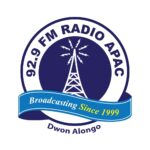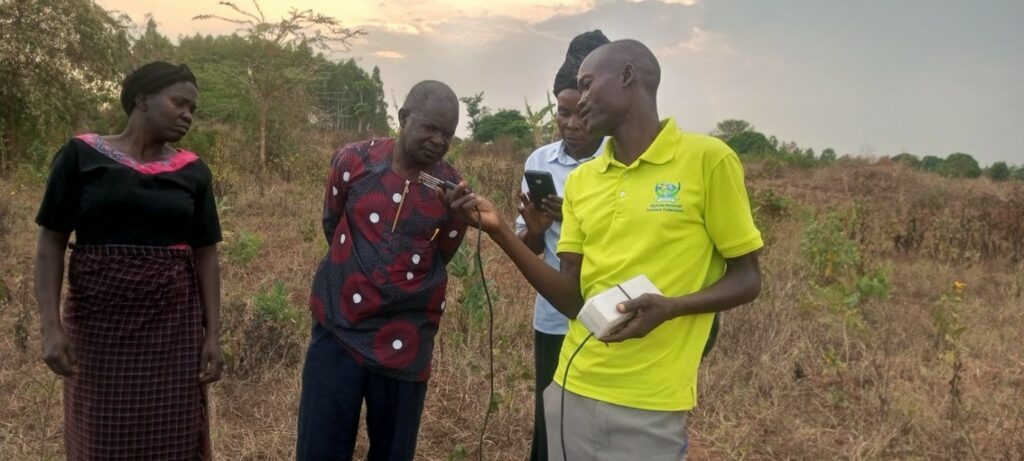
 Radio Apac
Radio Apac

 Radio Apac
Radio Apac
15 May 2025, 12:22 pm
By Mike Okwang Ogule

Apac, Uganda — The Rural Community Broadband Network (RCBN), under the coordination of the Northern Uganda Resilience Innovation Network (NURIN), is redefining agriculture in Apac District through the integration of AgriTech tools and digital solutions.
The project, supported by Internet Society, NURIN and netLabs!UG , is enhancing rural connectivity and introducing farmers to smart, data-driven farming practices.
The AgriTech initiative seeks to empower local farmers through the use of technology, including soil health kits, moisture sensors, and mobile applications, to improve decision-making and increase crop yields.
Mr. Walter Okello, the Apac District IT Officer, praised the RCBN project’s impact, noting that it has bridged the digital divide in underserved communities. Okello however highlighted that the connectivity provided is not only helping bridge the digital divide but has also fostered ICT literacy among the entire Apac community.
“We are seeing more schools integrate digital learning into their curriculum. With access to RCBN, students can now do research, access online educational tools, and even communicate with their peers globally,” Okello noted.
Mr. Donald Oyera Aquilla, headteacher of Maruzi Seed Secondary School, recognized the network’s role in transforming the learning environment. “Through RCBN, our students now access online learning materials, and teachers use digital resources to deliver lessons. It has also opened new career interests in ICT. This kind of exposure is vital for their future. The internet has brought the world closer to our classrooms.”
Martha Acio, a teacher at Apac Technical School shared that access to RCBN has enabled ICT students to complete hands-on projects with real-time data. “We no longer rely solely on textbooks. Learners can now simulate programs, access tutorials, and can as well submit assignments online,” the teacher added.
Ms. Popia Ogwang a farmer with Bedigen farmers group, shared her experience with the soil health kits. “We were amazed to see what our soil lacks and what we need to add to improve yield. This kind of knowledge is new to us, but it is very helpful,” said Ms. Popia, “I now know when and what to plant, and I can tell other farmers about this benefit,” Jimmy Okello another farmer added.

In addition to hardware deployments, there were surveys across 40–60 farms to assess the adoption of handheld AgriTech devices. The findings revealed that while enthusiasm was high, challenges such as lack of smartphones, limited network coverage in remote areas, and minimal awareness of the RCBN network still hinder full adoption. However, the majority of surveyed farmers, especially women (who made up 68.85% of respondents), expressed interest in learning more and using the tools to support decision-making on their farms.
With technical support from netLabs!UG, The RCBN was established in 2023 through a collaboration between the Government of Uganda and Makerere University’s Research and Innovations Fund. In June 2024, the Northern Uganda Resilience Innovation Network (NURIN) secured a $19,985 grant from the Internet Society to enhance the network’s reliability and adoption. This grant supported the deployment of a solar power source at the hub to run the network’s central equipment, ensuring availability even during grid power outages.

The Rural Community Broadband Network (RCBN) in Apac District comprises 13 operational sites. These sites include, an ICT hub, Apac District Headquarters, Bedigen farmer’s Group in Awiri, Apac Secondary School, Atopi Primary School, Maruzi Seed Secondary School, Apac Technical School, St. Albert Technical Institute, Apac Main Hospital, Atopi Market, KIC Office, and Nicho Poto Studio.
The RCBN has significantly impacted various sectors in Apac District, including education, agriculture, and public administration. With the collaboration of district leaders, schools, and farmers, Apac is setting an example in Northern Uganda of how rural innovation, connectivity, and agriculture can come together to build a resilient and self-sustaining digital economy.